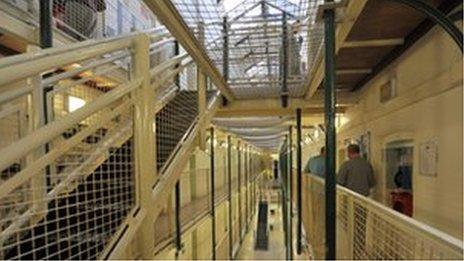Prison inspector warns of 'widening cracks' in system
- Published
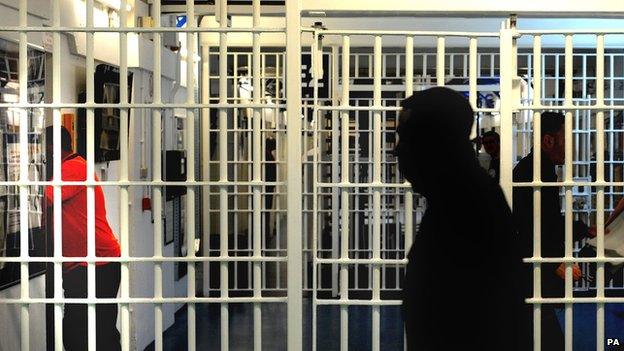
There has been a "rapid deterioration" in prison safety in England and Wales, the prisons inspector has warned.
Nick Hardwick said staff shortages, population pressures and prison policy all contributed to problems, with a 69% rise in self-inflicted deaths.
The Ministry of Justice said there was no evidence linking the rise in such deaths to government policy.
Presenting his annual report, external, Mr Hardwick also pointed to problems involving so-called legal highs.
He highlighted the growing availability of the drugs as a cause of debt, bullying and health problems, warning their use had grown sharply.
Nick Hardwick: "The point now is to acknowledge the problems in prisons and have a concrete plan to do something about it"
Reduced staffing
According to the HM Inspectorate of Prisons annual report, cannabis substitutes Spice and Black Mamba were particular "causes for concern" in more than a third of the jails inspected.
It says current mandatory random drug testing does not detect legal highs and reduced staffing had made some "suspicion" testing programmes "virtually inoperable".
Mr Hardwick said profits for prisoners selling legal highs outstripped other drugs because they sold for 10 times as much as they would outside jail.
He told BBC Radio 4's World at One: "We all want prisoners to come out of prison less likely to commit offences than when they went in and if they [prisons] are not safe places where people aren't working and are not doing rehabilitation activities, then that's not going to happen."
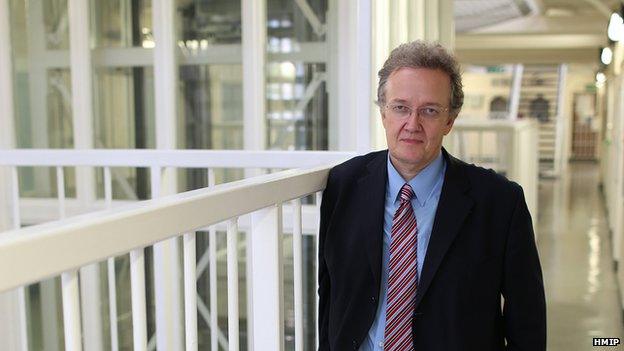
Nick Hardwick: "Safety outcomes were worst in adult male local prisons"
But warning cracks in the system had "widened", Mr Hardwick's report said: "Of most concern, the number of self-inflicted deaths rose by 69% from 52 in 2012-13 to 88 in 2013-14, the highest figure in 10 years."
The term "self-inflicted deaths" includes suicides and any death as a result of the prisoner's own actions.
Bullying was a factor in "many cases", the report said, warning that adult male prisons were becoming "more violence every year".
'More crime and more victims'
Andrew Selous, the Conservative prisons minister, said it had been a "challenging year" for prisons staff dealing with "major organisational change".
But he added: "During this time we have always had enough staff to deliver decent and safe prison regimes, and this will continue to be our top priority.
"We remain committed to reducing violence and understanding the reasons for the recent rise in self-inflicted deaths.
"But this is a complex issue and the chief inspector has failed to provide any evidence to support his assertion that this is linked to the reforms made under this government."
Labour's shadow justice secretary Sadiq Khan said the report "lays bare the deteriorating conditions in our jails under David Cameron's government" and showed ministers were "burying their heads in the sand".
"The government should be alarmed at reports of prisoners idling away their time in their cells rather than being on courses or working," he added.
"It does nothing to improve rehabilitation and puts the safety of communities at risk from unreformed prisoners drifting back into a life of crime and creating more needless victims."
Andrew Neilson, director of campaigns at the Howard League for Penal Reform, said: "This report spells out in painstaking detail the mounting challenges faced by prisons and gives the lie to repeated assertions by the Ministry of Justice that the system is not in crisis.
"If prisoners are spending most of their days locked up in their cells doing nothing, while regimes are violent and wracked with drug abuse, then how can we magically expect people to be safer citizens when they are released?
He added: "The end result will only be more crime and more victims of crime."
- Published20 October 2014
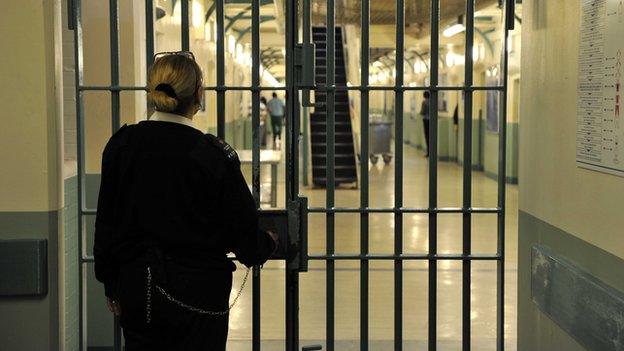
- Published19 August 2014
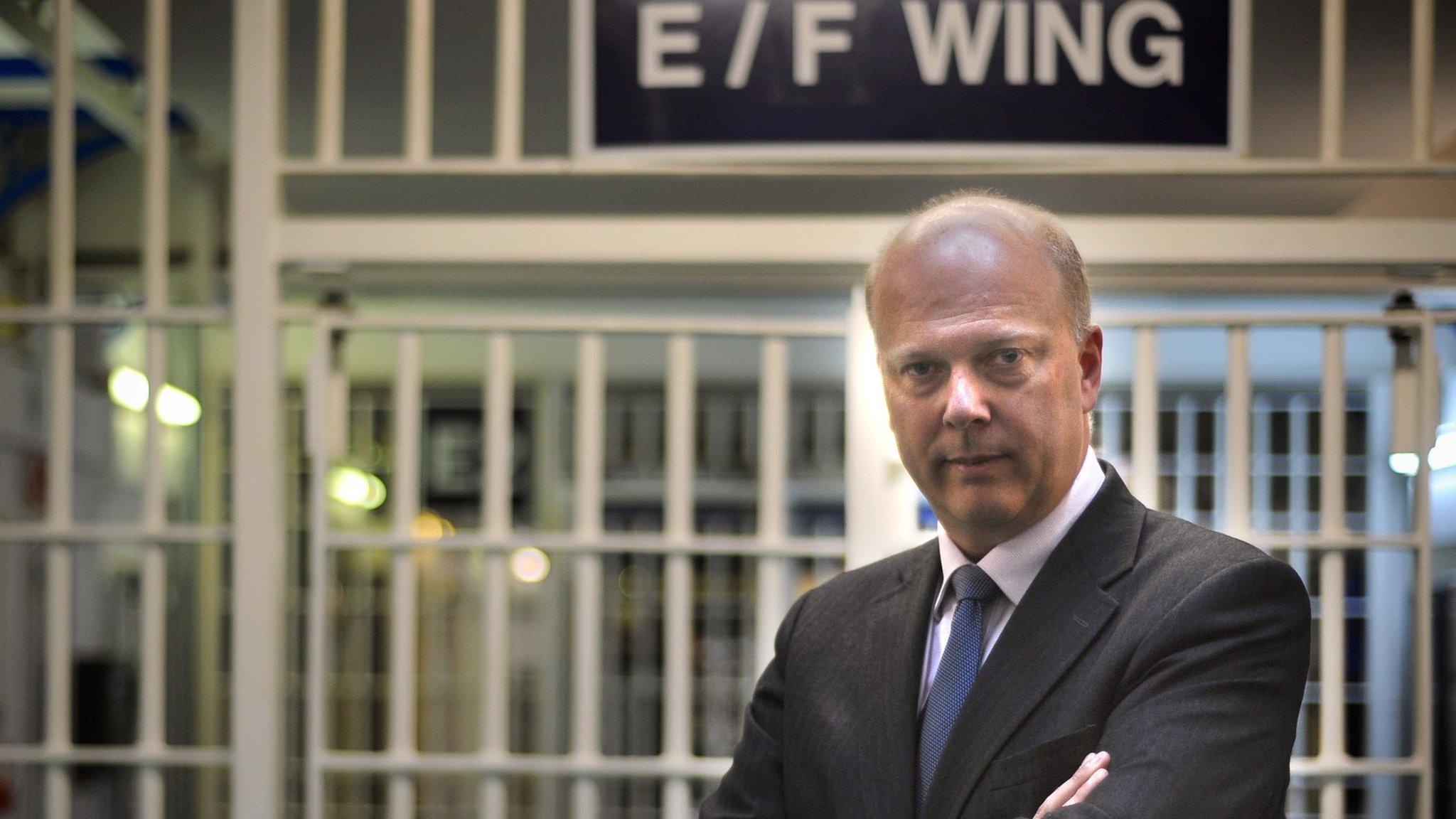
- Published17 October 2012
